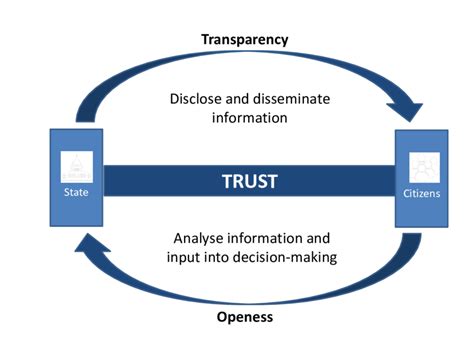
A recent MSC cruise encountered severe weather, including powerful winds and towering waves, during a voyage in the Mediterranean Sea, causing discomfort and minor damage but no reported injuries.
Passengers aboard an MSC cruise ship experienced a harrowing encounter with rough weather conditions in the Mediterranean Sea last week. The ship, identified as an MSC vessel but not specifically named in initial reports, faced strong winds and significant wave action, leading to a less-than-ideal cruise experience for many on board. Videos and accounts from passengers painted a picture of swaying furniture, water sloshing in pools, and overall unsettling conditions.
According to passenger accounts and videos circulating on social media, the weather disturbance caused considerable disruption to the cruise. “The ship was rocking severely,” one passenger recounted in a statement to media outlets, adding, “it was hard to walk, and many people were feeling seasick.” Another passenger shared videos showing water overflowing from swimming pools and furniture sliding across decks, highlighting the severity of the conditions.
MSC Cruises confirmed the incident, stating that the ship encountered “adverse weather conditions” but emphasized that the safety of passengers and crew remained the top priority. “MSC Cruises always prioritizes the safety and well-being of its passengers and crew,” a company spokesperson stated. “The ship’s captain and crew took all necessary precautions to ensure the safety of everyone on board.” The company added that while there was some minor damage to public areas, no serious injuries were reported.
The specific route and duration of the cruise were not explicitly detailed in the initial reports, but it was mentioned that the ship was sailing in the Mediterranean Sea. Weather patterns in the Mediterranean can be notoriously unpredictable, particularly during the transitional seasons of spring and autumn. Sudden storms and strong winds, often associated with low-pressure systems moving across the region, can quickly create challenging conditions for maritime vessels.
Cruise lines like MSC Cruises are equipped to handle a range of weather conditions. Modern cruise ships are built with advanced stabilization systems designed to minimize the impact of rough seas. These systems typically include fin stabilizers, which extend from the sides of the ship below the waterline and counteract the rolling motion caused by waves. Additionally, cruise ship captains receive extensive training in meteorology and navigation, enabling them to make informed decisions about route adjustments and speed reductions to avoid the worst of the weather.
Despite these precautions, extreme weather can still present challenges. Passengers are often advised to take certain steps to minimize discomfort during rough seas, such as staying in lower decks, avoiding alcohol, and using motion sickness medication. Cruise lines also typically adjust onboard activities and entertainment schedules to accommodate the conditions. Outdoor deck activities may be temporarily suspended, and indoor venues may be modified to ensure passenger safety.
The incident serves as a reminder of the inherent risks associated with maritime travel, particularly in regions prone to unpredictable weather patterns. While cruise lines take extensive measures to ensure passenger safety, severe weather can sometimes disrupt even the most well-planned itineraries. Passengers are encouraged to stay informed about potential weather conditions and to follow the instructions of the ship’s crew in the event of adverse weather.
This is not the first time that cruise ships have encountered challenging weather conditions. In recent years, several incidents have been reported involving cruise ships being delayed or rerouted due to storms and high seas. These incidents underscore the importance of ongoing vigilance and preparedness on the part of cruise lines and maritime authorities. Advancements in weather forecasting technology and ship design continue to improve the ability to navigate safely through rough seas, but the forces of nature can still present formidable challenges.
The MSC cruise ship’s experience highlights the complexities of operating large passenger vessels in dynamic marine environments. While cruise ships offer a luxurious and convenient way to travel, passengers should be aware of the potential for unexpected disruptions due to weather or other unforeseen circumstances. Travel insurance can provide some protection against financial losses incurred as a result of trip cancellations or delays.
As the cruise industry continues to grow, with increasing numbers of passengers taking to the seas each year, the focus on safety and preparedness remains paramount. Cruise lines are constantly working to improve their operational procedures and technology to mitigate the risks associated with maritime travel. The incident involving the MSC cruise ship serves as a valuable learning opportunity for the industry, underscoring the importance of continuous improvement and collaboration to ensure the safety and well-being of passengers and crew.
The incident also sparks discussion about the broader implications of climate change on maritime travel. As global weather patterns become more erratic and extreme weather events become more frequent, cruise lines may face increasing challenges in maintaining consistent and reliable schedules. The industry will need to adapt to these changing conditions by investing in more resilient infrastructure, enhancing weather forecasting capabilities, and developing more flexible operational strategies.
In conclusion, the MSC cruise ship’s encounter with rough weather in the Mediterranean Sea underscores the unpredictable nature of maritime travel and the importance of preparedness. While the incident caused some discomfort and minor damage, no serious injuries were reported, and the ship continued on its voyage. The cruise line emphasized its commitment to safety and its ability to handle adverse weather conditions. The incident serves as a reminder of the challenges and responsibilities associated with operating large passenger vessels in dynamic marine environments.
Expanded Details and Context
To fully appreciate the situation faced by the MSC cruise ship, it is crucial to delve deeper into the various aspects surrounding the incident, including the specific weather conditions, the ship’s capabilities, the passengers’ experience, and the broader context of maritime safety.
Specific Weather Conditions
While the initial reports referred to “adverse weather conditions,” a more detailed understanding of the meteorological factors at play is necessary. The Mediterranean Sea is known for its volatile weather patterns, particularly during the shoulder seasons of spring and autumn. During these periods, the region is susceptible to the formation of intense low-pressure systems, which can generate strong winds, heavy rainfall, and significant wave heights.
The specific weather conditions encountered by the MSC cruise ship likely involved a combination of these factors. Strong winds, potentially reaching gale force (39-46 mph) or even storm force (47-54 mph), would have created large waves, possibly exceeding 10 feet or more in height. These waves, combined with the wind, would have caused the ship to roll and pitch significantly, leading to the discomfort experienced by passengers.
The intensity of the weather system could have been influenced by several factors, including the temperature contrast between air masses, the presence of upper-level disturbances, and the topography of the surrounding landmasses. The Mediterranean’s complex geography, with its numerous islands and peninsulas, can create localized weather phenomena that are difficult to predict with precision.
Ship’s Capabilities and Safety Measures
Modern cruise ships like those operated by MSC Cruises are designed and equipped to withstand a wide range of weather conditions. These ships incorporate several key features that enhance their stability and safety:
-
Stabilizers: As mentioned earlier, fin stabilizers are a crucial component of a cruise ship’s stability system. These retractable fins, located below the waterline, extend outwards and generate hydrodynamic forces that counteract the rolling motion caused by waves. The stabilizers are controlled by sophisticated computer systems that continuously monitor the ship’s motion and adjust the fin angles to minimize roll.
-
Hull Design: The hull of a cruise ship is designed to be strong and resilient, capable of withstanding the stresses imposed by waves and wind. The hull is typically constructed of high-strength steel and is divided into numerous watertight compartments. This compartmentalization helps to prevent the ship from sinking in the event of a hull breach.
-
Weather Routing: Cruise ship captains rely on advanced weather forecasting information to plan their routes and avoid areas of severe weather. Weather routing services provide detailed forecasts of wind, waves, and other meteorological parameters, allowing captains to make informed decisions about course adjustments and speed reductions.
-
Emergency Procedures: Cruise ships have well-defined emergency procedures in place to deal with a variety of situations, including severe weather. These procedures include protocols for securing loose objects, closing exterior doors and windows, and providing assistance to passengers who may be feeling unwell. Crew members receive regular training in these procedures to ensure that they are prepared to respond effectively in the event of an emergency.
Despite these safety measures, it is important to recognize that even the most advanced cruise ships are not immune to the effects of extreme weather. In very severe conditions, the ship may still experience significant motion, and passengers may experience discomfort or even fear.
Passengers’ Experience and Reactions
The passenger accounts and videos that circulated on social media provided a vivid picture of the conditions on board the MSC cruise ship during the storm. Passengers described feeling seasick, struggling to walk, and witnessing furniture sliding across decks. The videos showed water sloshing in swimming pools and waves crashing against the ship’s windows.
The passengers’ reactions to these conditions varied. Some passengers expressed fear and anxiety, while others tried to remain calm and enjoy the experience as best they could. The cruise line’s efforts to keep passengers informed and reassured were likely crucial in mitigating panic and maintaining order.
The incident highlights the importance of effective communication between the cruise line and its passengers during times of crisis. Passengers need to be kept informed about the situation, the steps being taken to ensure their safety, and what they can do to minimize their discomfort. Clear and timely communication can help to reduce anxiety and build trust between the passengers and the crew.
Broader Context of Maritime Safety
The MSC cruise ship incident serves as a reminder of the inherent risks associated with maritime travel. While cruise ships are generally very safe, accidents and incidents can occur, particularly in challenging weather conditions.
Over the years, there have been several high-profile incidents involving cruise ships that have raised concerns about maritime safety. These incidents have included collisions, groundings, fires, and outbreaks of illness. In response to these incidents, the cruise industry and maritime regulators have implemented a range of measures to improve safety, including:
-
Enhanced Training: Cruise ship crews receive extensive training in a variety of areas, including navigation, safety procedures, emergency response, and passenger management. The training is designed to ensure that crew members are prepared to handle a wide range of situations, from routine operations to emergency situations.
-
Stricter Regulations: Maritime regulators, such as the International Maritime Organization (IMO), have established strict regulations for the design, construction, and operation of cruise ships. These regulations cover a wide range of topics, including fire safety, hull integrity, navigation equipment, and pollution prevention.
-
Improved Technology: Cruise ships are equipped with advanced technology to enhance safety and efficiency. This technology includes radar, GPS, electronic charting systems, and automated engine controls. These systems help to improve situational awareness and reduce the risk of human error.
-
Independent Oversight: Cruise ships are subject to regular inspections by independent organizations to ensure that they are complying with safety regulations. These inspections cover all aspects of the ship’s operation, from the hull and machinery to the fire safety systems and passenger accommodations.
Despite these efforts, the risk of accidents and incidents can never be completely eliminated. Maritime travel is inherently complex and involves numerous factors that are beyond human control, such as weather, sea conditions, and mechanical failures.
Climate Change and Maritime Travel
The MSC cruise ship incident also raises concerns about the potential impact of climate change on maritime travel. As global weather patterns become more erratic and extreme weather events become more frequent, cruise lines may face increasing challenges in maintaining consistent and reliable schedules.
Climate change is expected to lead to a number of changes in the marine environment, including:
-
Increased Sea Temperatures: Rising sea temperatures can lead to the formation of more intense storms and hurricanes. These storms can pose a significant threat to cruise ships and other vessels.
-
Sea Level Rise: Sea level rise can inundate coastal areas and make navigation more difficult in some regions. It can also increase the risk of flooding and damage to port facilities.
-
Changes in Ocean Currents: Changes in ocean currents can affect the distribution of marine life and alter the navigational conditions in some areas.
-
Ocean Acidification: Ocean acidification, caused by the absorption of carbon dioxide from the atmosphere, can harm marine ecosystems and affect the sustainability of fisheries.
To adapt to these changing conditions, cruise lines may need to invest in more resilient infrastructure, enhance weather forecasting capabilities, and develop more flexible operational strategies. They may also need to consider altering their itineraries to avoid areas that are particularly vulnerable to climate change impacts.
The cruise industry has a responsibility to mitigate its own contribution to climate change by reducing its greenhouse gas emissions. This can be achieved through a variety of measures, such as using more efficient engines, adopting alternative fuels, and implementing energy conservation practices.
FAQ Section:
1. What exactly happened to the MSC cruise ship?
- An MSC cruise ship encountered severe weather in the Mediterranean Sea, including strong winds and high waves, causing the ship to rock significantly. Passengers reported discomfort and minor damage occurred on board.
2. Were there any injuries reported on the ship?
- According to MSC Cruises, there were no serious injuries reported as a result of the severe weather. The company emphasized that the safety of passengers and crew was their top priority.
3. What kind of damage did the ship sustain?
- The ship sustained minor damage to public areas. Specific details about the damage were not disclosed, but reports indicated water entered some areas and furniture moved due to the ship’s motion.
4. How prepared are cruise ships for handling severe weather?
- Modern cruise ships are equipped with advanced stabilization systems, such as fin stabilizers, designed to minimize the impact of rough seas. Captains also receive extensive training in meteorology to make informed decisions about navigating through adverse weather conditions.
5. How does climate change impact maritime travel and cruise lines?
- Climate change is expected to lead to more erratic and extreme weather events, posing challenges for cruise lines in maintaining consistent schedules. Rising sea temperatures, sea-level rise, changes in ocean currents, and ocean acidification are some of the factors that could affect maritime travel.
Additional Information
In addition to the points already covered, several other aspects are worth considering to provide a comprehensive understanding of the MSC cruise ship incident and its broader implications.
The Role of Technology
Technology plays a crucial role in ensuring the safety and efficiency of cruise ship operations. In addition to the advanced systems already mentioned, cruise ships also rely on a range of other technologies, including:
-
Radar: Radar systems are used to detect other vessels, obstacles, and weather patterns. They provide a vital tool for navigation, particularly in conditions of reduced visibility.
-
Electronic Charting Systems (ECS): ECS systems display electronic charts and navigational information on computer screens. They provide a more detailed and user-friendly interface than traditional paper charts.
-
Automatic Identification System (AIS): AIS is a tracking system that allows ships to exchange information about their identity, position, course, and speed. This information is used to improve situational awareness and prevent collisions.
-
Satellite Communication: Satellite communication systems provide a reliable means of communication between the ship and shore, even in remote areas. They are used for a variety of purposes, including weather forecasting, emergency communications, and passenger communications.
The Importance of Crew Training
The skills and experience of the ship’s crew are essential for ensuring the safety and well-being of passengers. Cruise ship crews receive extensive training in a variety of areas, including:
-
Navigation: Navigation officers are responsible for planning and executing the ship’s voyage. They must have a thorough understanding of navigation principles, meteorology, and maritime law.
-
Engineering: Engineering officers are responsible for maintaining the ship’s machinery and equipment. They must have a strong understanding of mechanical, electrical, and marine engineering.
-
Safety: Safety officers are responsible for ensuring that the ship complies with all safety regulations. They must have a thorough understanding of fire safety, emergency response, and first aid.
-
Hospitality: Hospitality staff are responsible for providing passengers with a comfortable and enjoyable cruise experience. They must have excellent customer service skills and be able to handle a wide range of passenger requests.
The Passenger Perspective
While the safety and operational aspects of the MSC cruise ship incident are important, it is also essential to consider the passenger perspective. For many passengers, a cruise is a significant investment of time and money, and they expect a relaxing and enjoyable experience.
When a cruise is disrupted by severe weather or other unforeseen circumstances, passengers may feel disappointed, frustrated, or even anxious. Cruise lines have a responsibility to communicate effectively with passengers, provide them with accurate information, and offer appropriate compensation for any inconvenience they may have experienced.
Travel insurance can provide passengers with some protection against financial losses incurred as a result of trip cancellations, delays, or other unforeseen circumstances. It is advisable for passengers to purchase travel insurance before embarking on a cruise.
The Future of Cruise Travel
The cruise industry is a dynamic and evolving sector of the tourism industry. In recent years, the industry has experienced rapid growth, with increasing numbers of passengers taking to the seas each year.
Looking ahead, the cruise industry is likely to face a number of challenges and opportunities, including:
-
Sustainability: As concerns about climate change and environmental pollution grow, the cruise industry will need to adopt more sustainable practices. This may involve using alternative fuels, reducing emissions, and minimizing waste.
-
Technology: Technology will continue to play an increasingly important role in cruise ship operations. This may involve using artificial intelligence to optimize routes, improve safety, and enhance the passenger experience.
-
Competition: The cruise industry is becoming increasingly competitive, with new cruise lines entering the market and existing cruise lines expanding their fleets. This competition is likely to lead to lower prices and more innovative cruise offerings.
-
Geopolitical Risks: Geopolitical instability and security threats can pose a risk to cruise travel. Cruise lines will need to monitor these risks and adjust their itineraries accordingly.
Conclusion
The MSC cruise ship incident serves as a valuable reminder of the complexities and challenges associated with maritime travel. While cruise ships are generally very safe, they are not immune to the effects of severe weather and other unforeseen circumstances.
The incident underscores the importance of preparedness, effective communication, and continuous improvement in the cruise industry. Cruise lines must invest in advanced technology, provide comprehensive training to their crews, and communicate effectively with passengers to ensure their safety and well-being.
As the cruise industry continues to grow, it will face increasing challenges related to sustainability, technology, competition, and geopolitical risks. By addressing these challenges proactively, the industry can ensure that cruise travel remains a safe, enjoyable, and sustainable form of tourism for many years to come.









